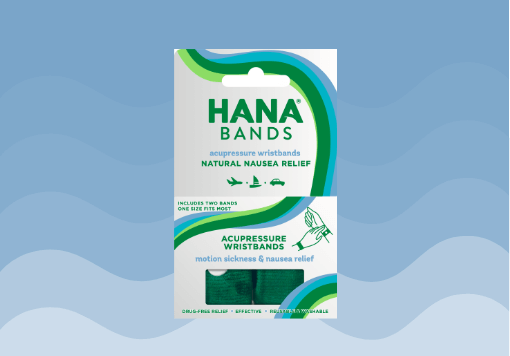What Helps Morning Sickness? 10 Ways to Treat Morning Sickness

Many women go into pregnancy not knowing exactly what to expect. Most of what they learned come from movies or Pinterest-perfect pictures. They expect to be glowing, happy and sporting a cute little baby bump.
Then comes morning sickness.
They learn pretty quickly that “morning” sickness is really “all day” sickness and pregnancy is tougher than it looks. Even if morning sickness is not severe enough to require medication, it can still significantly hamper an expectant mother’s life.
Don’t Let It Rule Your Life!
Just because you’re pregnant doesn’t mean that your world stops. Most women still have jobs, friends, side hustles, and even other children to care for. You do not have time to spend weeks in bed as you wait for morning sickness to subside. You need relief-fast.
Here are some tips to help with morning sickness so you can get back to enjoying your pregnancy.
Why Do I Have Morning Sickness?

But first, what causes morning sickness? Although researchers cannot pinpoint the exact cause of morning sickness, there are a lot of theories on why most women experience morning sickness.
Morning sickness is incredibly common. In fact, as many as 80% of women will experience morning sickness at the beginning of their pregnancy. Symptoms range from mild nausea to actual vomiting.
The onset of morning sickness can vary. Many get it right away (in fact,25% of women reported morning sickness as their first pregnancy symptom!), while other women get it by six weeks. Morning sickness typically continues to increase and peaks around week 10 for most women. It then levels off and most women experience relief around 12 to 14 weeks.
So if you’re currently in the throes of morning sickness, take comfort in the fact that it doesn’t last forever!
What Are The Causes?
It’s long been a mystery over what exactly causes morning sickness. One theory is that it is an evolutionary adaptation to keep the embryo safe from possibly harmful foods. Most of the common food aversions during pregnancy have a high risk of food poisoning. Meat, eggs, and milk are all typical food aversions that carry a risk of food-borne illness.
Another theory is that morning sickness is caused by changes in hormones, most specifically Human Chorionic Gonadotropin (hCG). This hormone is released when the egg becomes fertilized and attaches to the uterine wall. It continues to increase in the first part of pregnancy and levels off around the second trimester. This increase mirrors the increase of morning sickness that most women feel.
A third theory maintains that it is symptomatic of a nutrient deficiency. Researchers point out that supplementing withvitamin B6 is an effective first-line of treatment against morning sickness during pregnancy.

When to Be Concerned About Your Morning Sickness
Most of the time, morning sickness is nothing to be concerned about. In fact,many women who experience morning sickness are at a lower risk of miscarriage. There is even some initial research that has found that women who experience morning sickness even have smarter babies!
However, if morning sickness becomes excessive it can be dangerous. Hyperemesis gravidarum is a rare condition that produces excessive morning sickness that can lead to electrolyte imbalance, dehydration, and excessive weight loss. The public became more aware of the condition when Kate Middleton suffered from it during all three of her pregnancies.
Hyperemesis gravidarum can become dangerous to the mother and fetus and often requires hospitalization. If you are suffering from extreme nausea and vomiting, weight loss of over 5% your pre-pregnancy weight, dehydration, fainting, confusion, jaundice, or extreme fatigue, contact your hospital or doctor.
Tips to Deal with Morning Sickness

The good news, though, is that there are many different ways to help treat morning sickness. If your stomach is making you miserable, try out some of these tricks and remedies to help you enjoy your pregnancy.
Choose Sour Foods
What foods are good for morning sickness? When it comes to curbing nausea right away, many women report that sour foods provide relief. Citrus is a great way to both calm your stomach plus provides vitamins and minerals for you and your growing babe. Try eating orange slices, or sucking on a lemon or lime slice.
If the thought of eating an orange or sucking on a lemon is too much, consider a citrus-flavored hard candy to help bring relief. Other women swear by lemonade as a morning sickness remedy during pregnancy.
Get Plenty of Rest

Stress and exhaustion due to pregnancy can make morning sickness worse. Take some time out for yourself each day and be sure to get a full night’s sleep every night. Rest and relaxation are important to a healthy pregnancy and will help curb some of the morning sickness as well.
Your body is doing an incredible amount of work, especially in the first trimester. Did you know that your body is creating a whole new organ? That’s right: most of the body’s work at the beginning of pregnancy is towards building the placenta, a whole new organ. It can be incredibly taxing on your body, so be sure to treat yourself to some much-needed rest.
Stay Hydrated
Staying hydrated is important during pregnancy, but it can also help with the symptoms of morning sickness. Dehydration can also be an unfortunate side effect of morning sickness, so water is more essential than ever.
If you struggle with keeping water down, try adding lemon or lime slices. Citrus slices have the added bonus of getting in the sour foods to help curb nausea, plus it can spice up water if you are bored of it. Another option is to drink tea to replace any lost fluids. It can also be helpful to drink water away from meal times, since it can sometimes be too taxing on the stomach to drink water while you are eating.

Track Your Morning Sickness
Although morning sickness does not necessarily strike in the morning, many women find that there are natural rhythms in their pregnancy related nausea. Keep track of when your morning sickness worsens and subsides. You may even want to keep a diary and write down the times when you get better and worse. Try to plan meals around the times you notice your symptoms ease. Being proactive about eating when you can will help keep morning sickness from worsening.
Eat Plenty of Protein
Too much carbohydrates or fat can set off nausea, but protein-rich foods can be useful to treat nausea. According to a recent study,protein was useful for keeping morning sickness at bay. Try to keep high-protein snacks on hand to help keep morning sickness at bay. Some useful snacks to get some more protein in your diet can include nuts, seeds, cheese, and yogurt.
Stay Upright After Eating
During the first trimester of pregnancy, sometimes all you want to do is lie down. Especially after eating and getting a fresh wave of nausea, it can be difficult to stay upright. Lying down after a meal makes the stomach work harder, though, and can increase nausea and the risk of vomiting. Let gravity take most of the work for you to digest your meal. Stay upright to take some of the work off of your stomach, which can bring some relief.
Avoid Brushing Your Teeth Right After Eating
Most of us develop healthy brushing habits when we are young and they can be hard to break. However, your habit of brushing your teeth right after a meal may be making your nausea even worse. Many women are surprised to find that they have an overactive gag reflex during pregnancy. Your stomach is working hard to digest your meal, so give it a break and wait a little while to get your teeth clean.
Pick Cold Food

Pregnancy can bring a strong sense of smell. This can make morning sickness symptoms even worse. Many women are sick before they can even take their first bite because of cooking smells. In addition to avoiding strong smells during pregnancy, cold foods can be a helpful way to get food down without getting nauseated. Choose simple cold foods, such as a salad or sandwich, to make eating more pleasant until morning sickness subsides.
Have Breakfast in Bed
Although it‘s unclear exactly why, low blood sugar is linked with morning sickness. Since blood sugar is often low after fasting all night, many women experience their worst nausea first thing in the morning.
You can avoid this initial nausea by eating before getting out of bed. Some women keep crackers or a banana on their nightstand to have something to munch on first thing in the morning. Another option is to have your partner bring you some food. Stick with bland foods, such as oatmeal or toast, and be sure to chew slowly in order to encourage digestion.
Take a Tonic
When morning sickness strikes, it can be difficult to find the energy or enthusiasm to make all the perfect nutritional choices to help with nausea. A tonic can help your body get the nutrition it needs while fighting morning sickness in one easy supplement.
Hana Tonic is full of nausea-busting ginger, lemon, and pineapple to help bring your stomach relief. Hana Tonic is also full of B-vitamins, which have been shown to be effective in fighting morning sickness and nausea.
Try Hana Tonic to help relieve morning sickness symptoms.
Morning Sickness Relief
Pregnancy can be a challenge, but that does not mean you need to suffer needlessly. By making some adjustments during the first trimester, you can curb some of your nausea and enjoy your pregnancy.
Try some, or all, of these remedies and get some relief today!
Learn more about how to prevent nausea during pregnancy in this article by Mom Loves Best



